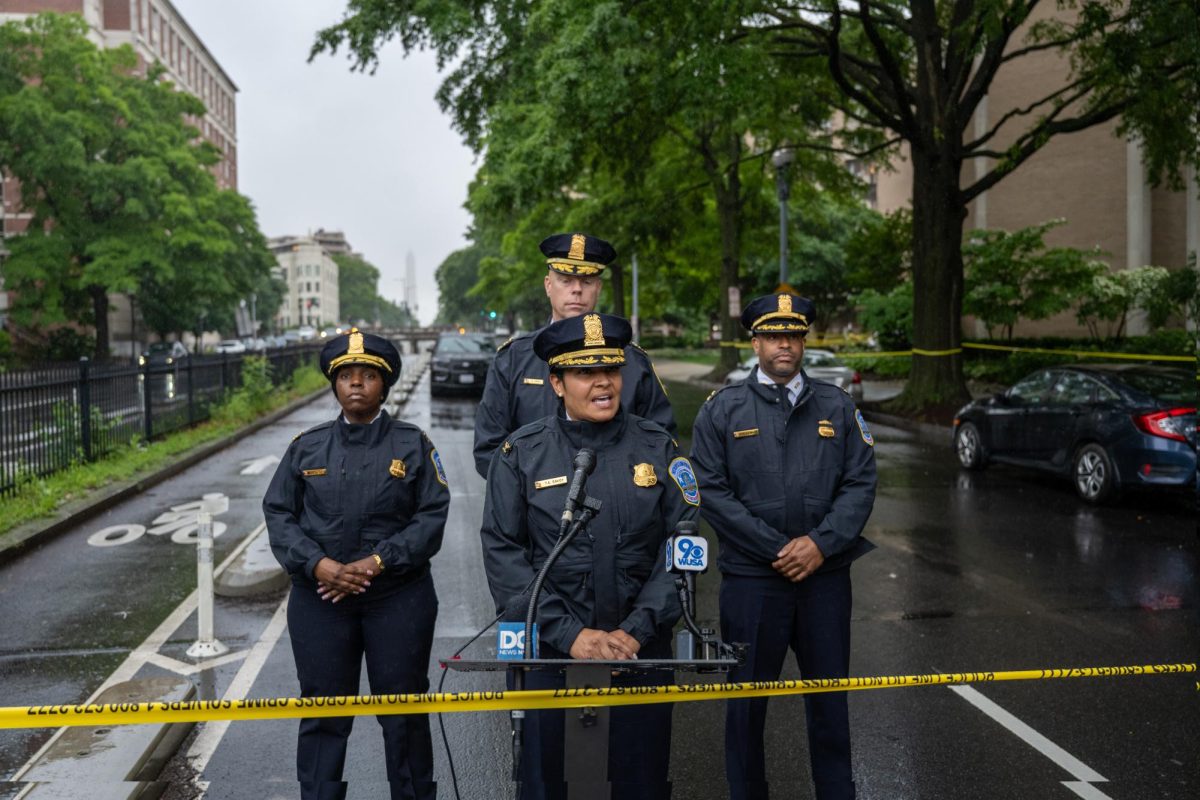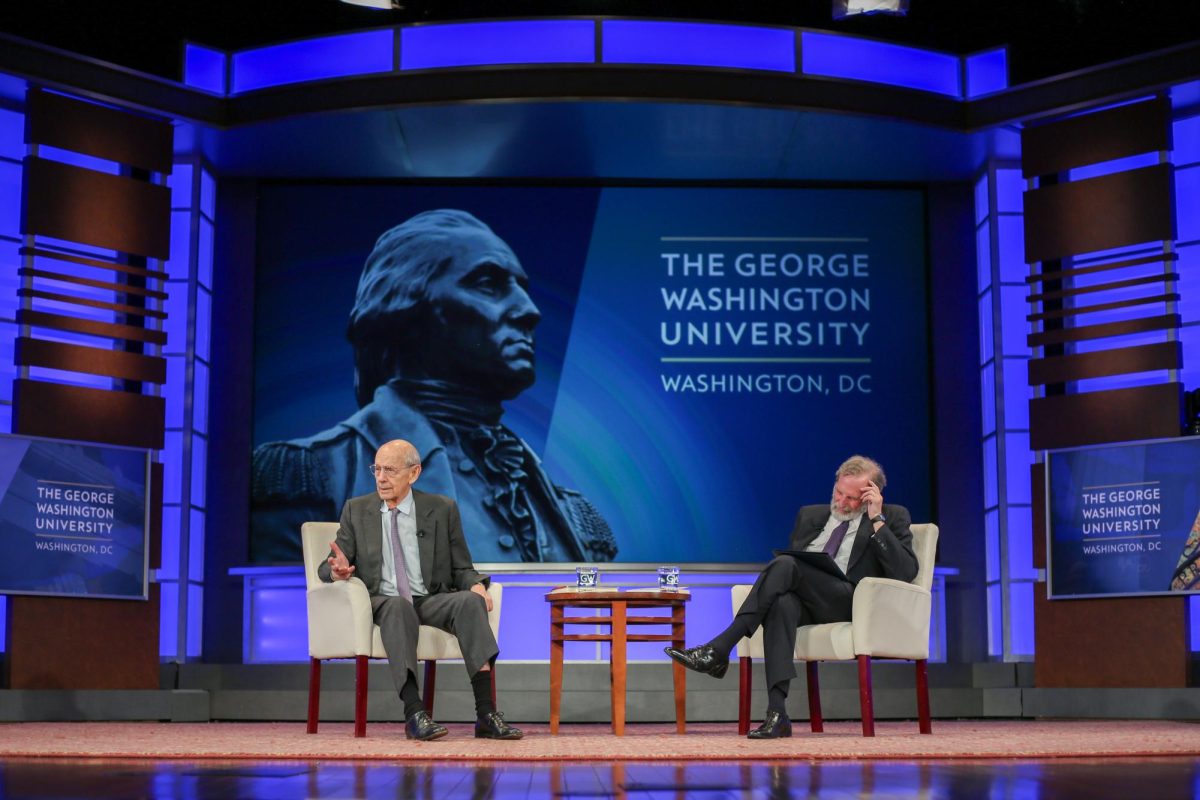Barack Obama won the election. Now what?
Stephen Hess, a professor at the School of Media and Public Affairs, who has been involved in nearly every presidential transition for the past 50 years, is hosting a series of events based on his new book “What Do We Do Now? A Workbook for the President-elect.”
The first event on Tuesday was a panel about selecting the White House staff moderated by professor Frank Sesno at the Jack Morton Auditorium. It was one of the first five events that will analyze the best courses of action for the president-elect in the next 77 days before Inauguration Day. The panel was made up of five former White House and cabinet staff and was broadcast on XM and Sirius satellite radio.
“It’s a very complicated task and it’s not surprising that many presidents have hit the ground stumbling, not running,” Hess said.
The panelists agreed that those appointed to the administration in the 77 days before Inauguration Day will be imperative in setting the tone of the White House.
“The toughest challenge is to make sure that you select capable, competent, experienced change agents who believe in your agenda and will work hard, smart, and long to make it happen, everyday,” said Robert Nash, the director of the White House Personnel Office during the Clinton administration. “There are 10,000 decisions everyday that have to be made somewhere in the administration and the president cannot make them all.”
Advice for Obama covered administrative, fiscal and delegation responsibilities.
“Never give major public policy responsibilities to someone you can’t fire,” Hess said.
Alice M. Rivlin, former deputy director of the Office of Management and Budget to President Clinton, contrasted Obama’s first term with Clinton’s.
“I think in some ways the crisis of the economy is favorable for the presidential promises, because we’re clearly going into a recession and we need to spend more and tax less,” Rivlin said. “I think he’s actually in a better situation than Bill Clinton was, who made similar promises (concerning middle-class tax cuts and infrastructure spending), but had to pull back because we were so focused on bringing the budget deficit down in the near-term. This president doesn’t have to bring it down in the near-term.”
William Galston, a former domestic affairs adviser to president Clinton, agreed that the budget will shape the tone of Obama’s presidency.
“It is not widely understood by presidential candidates that you have about four weeks after you take office to put together and then present your own first budget,” Galston said. “And that first budget can be a fateful budget, especially if you have made a long string of promises and then find yourself in economic circumstances very different from the circumstances that prevailed when you framed and uttered those promises, kind of like where we are right now.”
Edwin Meese, a former counselor to President Ronald Reagan, advised Obama to focus on the “five p’s” – people, policy, purse strings, problems, and procedure.
“These may seem like kind of mundane things, but unless he gets those things settled before he starts office, the problems are just going to come at him right and left,” Messe said.
Sophomore Colby Anderson said he attended because the topics coincided with several courses he currently takes for his major in political communications.
He said, “It was great for the community and it’s great that we could have experts in our midst explaining what can happen, especially when the transition is happening just a few blocks from the school.”







